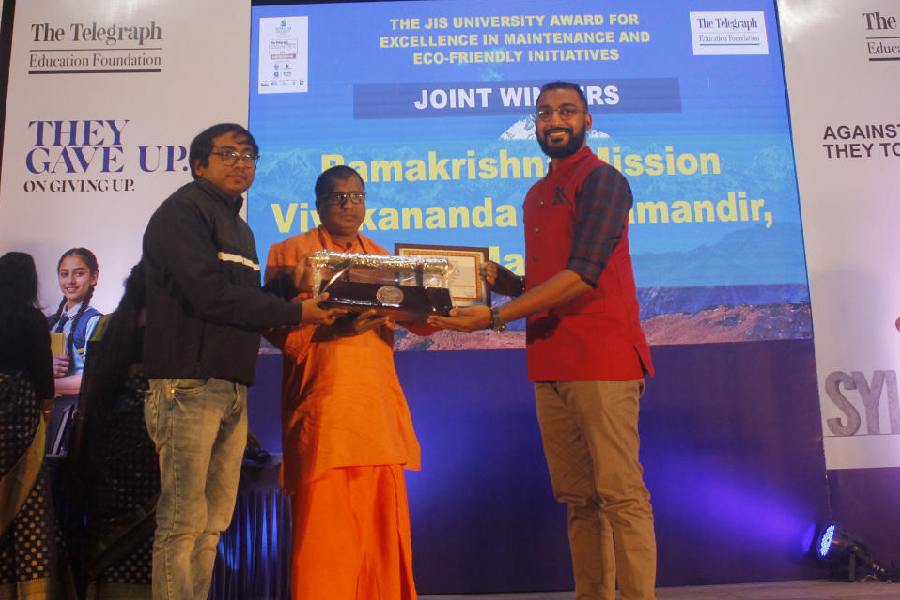At a time when world leaders are busy discussing ways to raise trillions of dollars to mitigate the effects of climate change at COP29 being held in Baku, Azerbaijan, some small and effective initiatives being undertaken by educational institutions in north Bengal served as an eye-opener for the cause at Adamas University Kolkata presents The Telegraph School Award for Excellence 2024 North Bengal.
The JIS University Award for Excellence in Maintenance and Eco-Friendly Initiatives were jointly handed over to Nagar Dakaliganj High School, Cooch Behar, Ramakrishna Mission Vivekanand Vidyamandir, Malda and St Joseph’s School (North Point), Darjeeling.
The location of the schools, which are at extreme corners of north Bengal, suggests that the message has finally begun trickling down.
The 29th Conference of the Parties to the UN Framework Convention on Climate Change (COP29) is being held from November 11 to 22.
A key focus of COP29 will be on finance, as trillions of dollars are required for countries to drastically reduce greenhouse gas emissions and protect lives and livelihoods from the worsening impacts of climate change.
The three schools are taking initiatives with these broad objectives in mind, but they are trying to keep their interventions simple.
“The work profile of the simple initiatives taken by these schools are mindboggling and also encouraging,” said Anupam Lama, director, of Paramount School, Kalimpong.
The faraway Cooch Behar school is now covered with medicinal and decorative plants which are taken care of by the student cabinet. The school is plastic-free and has also set up a 10kw solar power plant to meet the institution’s electricity requirements.
“During vacation, the excess power from this school is redirected to the government power line,” said a source.
A solar drinking water system was also installed in the school in 2022 and students can access pure drinking water from this project even when there is a disruption in the supply of electricity.
During hot summer days, classes are held under green trees within the complex and teachers along with students are encouraged to take meals in the banana leaves that are grown within the school.
“Following this award, we have more responsibilities on our shoulders now,” said Swapan Singha, headmaster of the institution.
The Ramakrishna Mission Vivekananda Vidyamandir school from Malda also has a 1.5kw solar panel working in the school apart from a rain harvesting system.
The school uses these plans to water its kitchen garden during dry seasons.
“We grow banana, dragon fruit, aloe vera, bottle gourd, pumpkin and papaya in our kitchen garden,” said a school teacher.
To segregate waste, the school also prepares bio compost from a mixture of kitchen waste, cow dung and oil cakes, which are residues after extracting oil from seeds.
Swami Tapaharananda, the headmaster of the school said that the objective is to sow the seed of love towards mother nature at a tender age.
“By catching them young and generating positive feelings for nature, we can turn the world into a better place to live,” said Swami.
Up in Darjeeling, where water scarcity is a major issue, the St Joseph’s School (North Point) has set up a water-harvesting plan in the difficult hill terrains. “A water filtration plant to recycle water water is near completion at the school,” said a source.
Environment awareness is a major thrust for this hill school.











